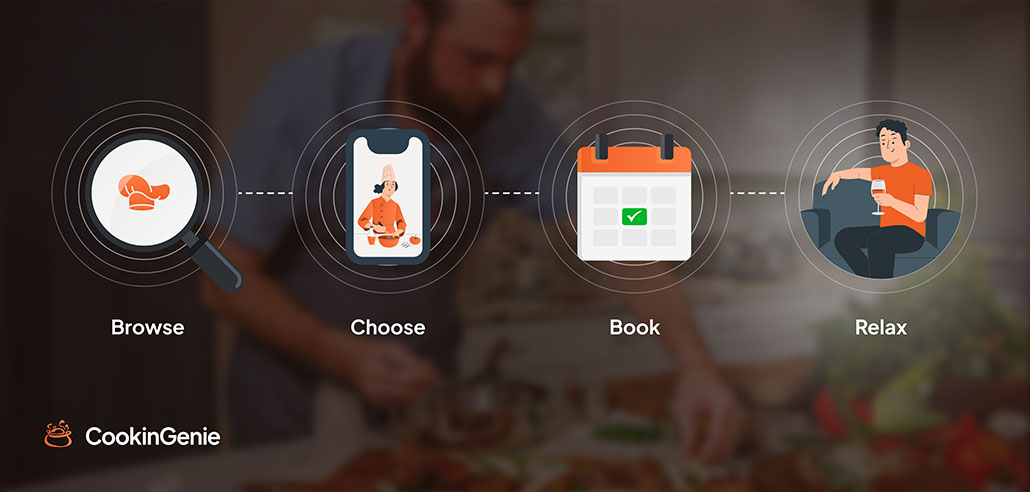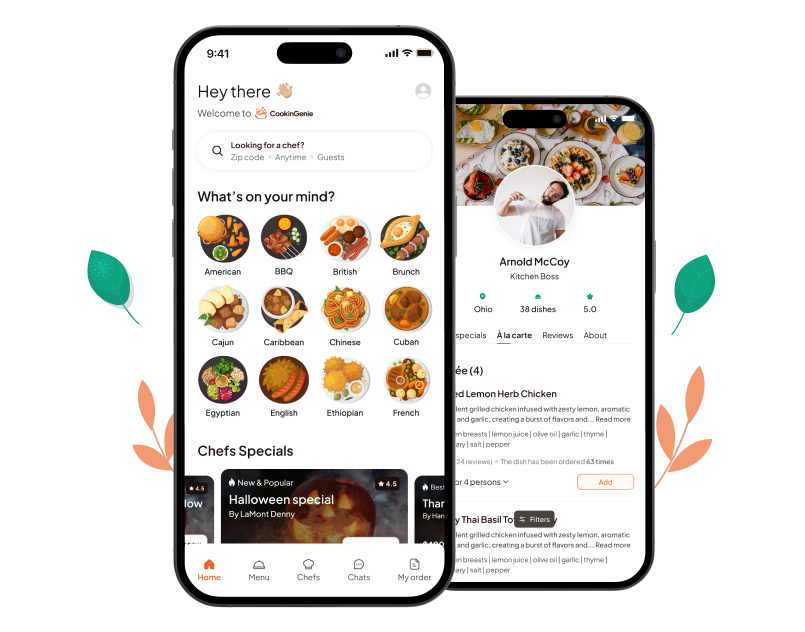Eat Less Sugar: 5 Quick Tips to Cut Down on Your Sugar Intake
According to the American Heart Association, the average adult consumes about 22 teaspoons of sugar per day, which is more than three times the recommended amount. High sugar intake leads to many health problems, including obesity, type 2 diabetes, and heart disease. Reducing sugar can be difficult, but making small changes is essential to improve your overall health. Why should you cut down on sugar?
- It is high in calories and can contribute to weight gain.
- It raises your blood sugar levels, leading to type 2 diabetes.
- It increases your risk of heart disease by causing damage to your arteries.
How much sugar is too much?
The American Heart Association (AHA) recommends that women consume no more than six teaspoons (25 grams) of sugar per day and men consume no more than nine teaspoons (36 grams) per day. This recommendation is the equivalent of about 100 calories (about 8 minutes of running) per day for women and 150 calories (about 12 minutes of running) per day for men.
When choosing foods and beverages, check the nutrition label for their sugar. You may also want to avoid foods and drinks high in “added sugars,” such as cakes, cookies, candies, and sugary beverages.
The problem with a lot of sugar
While sugar may taste sweet, consuming too much can lead to serious health problems. Here are some ways that sugar can cause harm:
- Contribute to weight gain: When you eat sugary foods, your blood sugar level rises, and your pancreas release insulin. Insulin then helps to store the sugar in your liver through glycogen. However, your liver can only hold so much glycogen, and any excess gets stored as fat. Over time, this can lead to weight gain.
- Triggers inflammation: Inflammation is the body’s natural response to infection or injury. However, chronic inflammation can cause numerous health problems, such as heart disease and arthritis. Sugar contributes to inflammation in the body.
- Affects hormone levels: Consuming too much sugar can disrupt the delicate balance of hormones in the body, leading to problems such as insulin resistance and PCOS (polycystic ovarian syndrome).
- Damages the liver: The liver is responsible for processing all the sugar consumed. Too much sugar can overload the liver and lead to fatty liver disease.
- Shortens life expectancy: A large study that followed over 6,000 people for eight years found that those who consumed 25% or more of their calories from sugar had a significantly increased risk of dying during the study period than those who consumed less sugar.
- Causes cavities: When you eat sugary foods, the bacteria in your mouth feed on the sugar and produce acid. This acid then breaks down the tooth enamel, leading to cavities.
You might be consuming more sugar than you realize
Many of us are unaware of just how much sugar we consume daily. Sugar is not just an ingredient in candy and desserts; a wide variety of processed foods contain sugar, from bread and cereal to peanut butter and salad dressing.
In addition, many of us drink sugary beverages such as soda and fruit juice. While they may seem harmless, these drinks have copious amounts of sugar. As a result, we may be consuming more sugar than we realize. Here are some examples of common foods that contain high levels of sugar:
- Breakfast cereals: Many types of popular breakfast cereal contain sugar, including those marketed as “healthy.” A single serving of some can have as much as 30 grams of sugar.
- Flavored yogurt: Yogurt is a healthy food, but many commercially available yogurts have added sugar. A cup of flavored yogurt can contain up to 40 grams of sugar.
- Granola bars: If you have been thinking of granola bars as a healthy snack, they can be remarkably high in sugar. A single bar can contain up to 15 grams of sugar.
- Sports drinks: Marketers often tout them as a healthy way to rehydrate after exercise, but these can be high in sugar. A single bottle of sports drink can contain up to 34 grams of sugar.
These are just a few examples of foods containing hidden sugars. To reduce sugar intake, you must be aware of the potential sources of hidden sugars in your diet.
Added sweeteners in our diet
The modern diet contains added sweeteners, from sugar and honey to corn syrup and molasses. While some sweeteners are natural, others are highly processed and refined. So, are they healthy or harmful?
Natural Sweeteners
Let us start with natural sweeteners. Sugar is made from sugar cane or sugar beets and is composed of sucrose molecules. It has been a sweetener for centuries and is safe in moderation. However, too much sugar can lead to weight gain, tooth decay, and type 2 diabetes.
Honey is another popular natural sweetener made by bees from flower nectar. Like sugar, it is composed of sucrose molecules. Honey has fewer calories than sugar and contains vitamins, minerals, and antioxidants. However, it can still cause weight gain if consumed in excessive amounts.
Processed Sweeteners
Now let us look at processed sweeteners. Corn syrup is made from corn starch and is composed of glucose molecules. It is often used in processed foods because it is cheaper than sugar and has a longer shelf life. However, corn syrup has been linked to obesity and type 2 diabetes.
Artificial sweeteners are also widely used in processed foods. They are usually many times sweeter than sugar but have very few calories. While artificial sweeteners are a healthy alternative to sugar, recent studies have shown that they may cause weight gain and other health problems.
Is it healthy or harmful?
So, are added sweeteners healthy or harmful? The answer is that it depends on the type of sweetener you consume. In moderation, natural sweeteners like sugar and honey are safe, but you should consume processed sweeteners like corn syrup and artificial sweeteners with caution.
Tips to cut back on sugar
The added sugar in processed foods can harm your health, causing weight gain, diabetes, and other chronic conditions. Luckily, there are a few simple steps you can take to cut back on your sugar intake:
- Focus on breakfast: It is no secret that most people consume too much sugar. The average American consumes about 22 teaspoons of sugar every day, which is far more than the recommended limit of 6 teaspoons. One of the best ways to reduce sugar intake is to focus on breakfast.
Breakfast usually includes sugary items like flavored oatmeal, pancakes, and waffles. However, there are several ways to make a healthier breakfast low in sugar. For example, you could try plain oatmeal with fresh fruit or whole-grain toast with peanut butter. - Think before reaching for beverages: Reducing sugary drinks is one of the simplest ways to reduce sugar intake. When choosing a beverage, consider whether you need added sugar. Water, unsweetened coffee, tea, and milk are all great options to help you stay hydrated without loading up on sugar.
If you choose a sugary drink, opt for a smaller size, or look for brands offering lower-sugar alternatives. With a bit of thought and effort, you can easily cut back on your sugar intake by making smarter choices regarding beverages. - Check your food closet: When cutting back on sugar, one of the best places to start is your kitchen. Look through your food pantry and identify any items high in sugar. Once you have made a list, see if you can swap them with healthier alternatives. For example, you could choose oatmeal or eggs instead of processed cereal. Or, instead of sugary snacks, you could snack on fruits and vegetables.
By making simple changes like these, you can drastically reduce the amount of sugar in your diet. Consider reading food labels more carefully. Many foods that are known to be healthy contain substantial amounts of sugar. By being more mindful of what you are eating, you can make better choices that will help you cut back on sugar and improve your overall health. - Stealth sugar: One sneaky way sugar can find its way into your diet is through ketchup and other common condiments. While ketchup may not taste overly sweet, it contains a fair amount of sugar. The same is true for other condiments like BBQ sauce, honey mustard, and even some varieties of salsa.
Instead of buying readymade condiments, you can prepare them at home. This way, you can control how much sugar goes into the recipe.
Another option is to look for brands of ketchup that are lower in sugar. Some brands offer “no sugar added” or “reduced sugar” varieties. Or you could use less ketchup overall. Instead of smothering your burger in ketchup, try using it more sparingly as a dipping sauce or flavoring agent. - Alternative to desserts: Sometimes, it can be challenging to cut back on sugar when it is a ubiquitous part of our diets. One way to reduce sugar intake is to replace desserts with healthier options. For example, you could enjoy fruit instead of eating a slice of cake. Or, if you are craving something chocolatey, you could have a few squares of dark chocolate instead of a candy bar.
Conclusion
Reducing sugar intake can be achieved by making minor changes to your diet and lifestyle. You can quickly reduce sugar intake by replacing sugary drinks with water or unsweetened alternatives, eating more whole foods, and limiting processed snacks and sweets. Additionally, watching portion sizes and being mindful of added sugars in foods can help you stay within your desired sugar budget. Making these changes may require some effort initially, but the health benefits are well worth it. So, take the first step today towards a healthier you.



 Settings
Settings
 Gift Card
Gift Card Blog
Blog Locate Us
Locate Us










 Home
Home
 Chefs
Chefs
 Chats
Chats
 My Order
My Order



